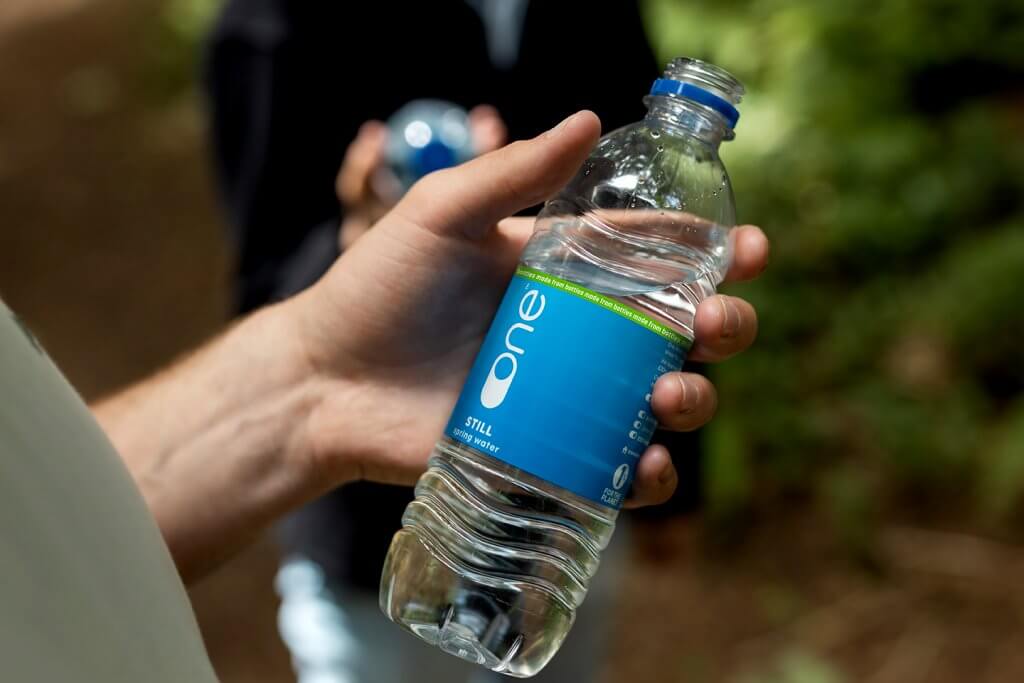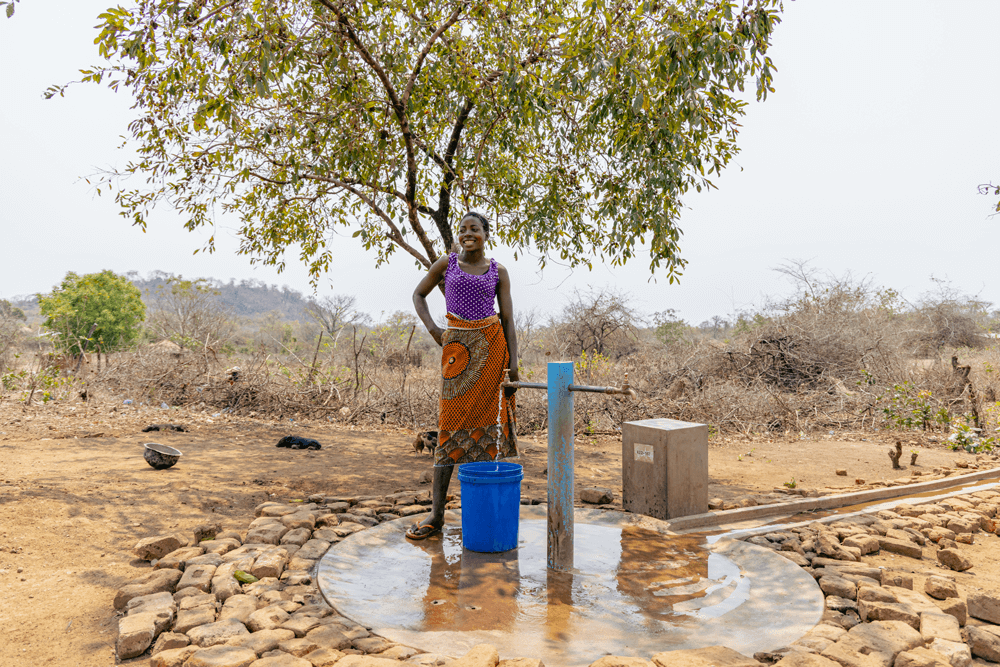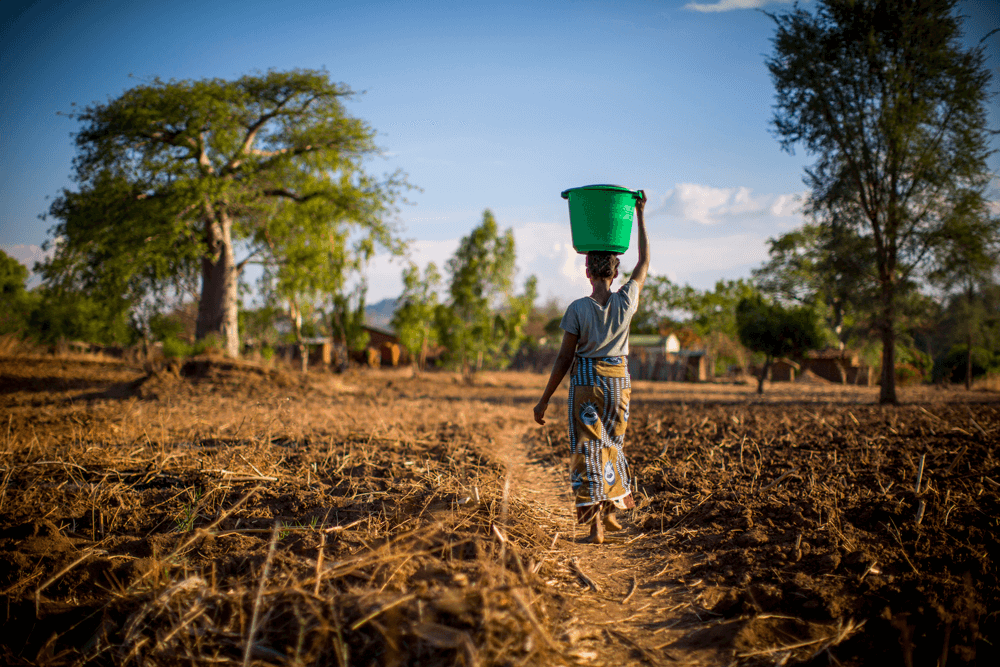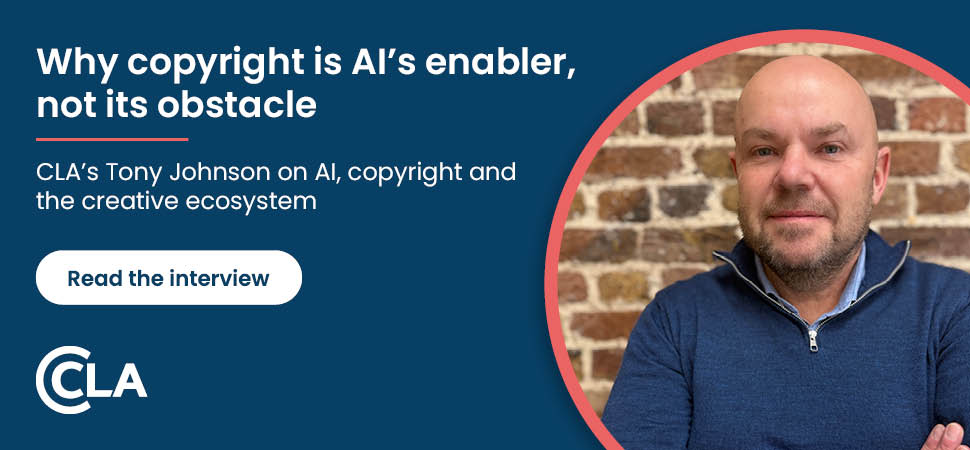Over the past two decades, Duncan Goose has navigated the complex and evolving landscape of the bottled water industry, witnessing firsthand the technological advancements and sustainability efforts that have reshaped the sector. As the founder of One Water, Goose’s journey is marked by a steadfast commitment to ethical practices, innovative packaging solutions, and a relentless pursuit of providing clean drinking water to those in need. Speaking exclusively with The Executive Magazine, his insights offer a profound look into the industry’s past, present, and future, underscoring the critical intersection of business, sustainability, and global humanitarian efforts

Over the past twenty years, the bottled water industry has undergone significant changes. Can you share your insights on these transformations and what you foresee as the future trends, particularly with the advent of Deposit Return Schemes?
“Everything, and nothing, has changed.
“If I look back to the start of my journey we were buying in bottles which weighed 25 grammes and the production line ran in at thousands of bottles per hour – partly because there were people manually taking the cases off the line, hand stacking on pallets and manually wrapping them.
“Today, a pellet gets fed into the line to make a pre-form, or pre-forms go into a hopper, and minutes later tens of thousands of 10 gramme bottles are palletised and moved to a loading bay by robots. Sometimes you don’t even see a person on the line.
“Virgin PET then, recycled PET (polyethylene terephthalate) now. Fat caps then, skinny caps now.
“But one thing hasn’t changed. It’s still water in a bottle.
“And the demand for it continues to grow. And grow.
“The so-called problem child of PET has been replaced by the desire to improve recycling of one of the lowest carbon packaging formats in the world. Deposit Return Schemes, Extended Producer Responsibility, Packaging Recovery Notes are all examples of movement towards improved sustainability, with a bit of taxation help to get there. Many years ago, I was working with the UN, the World Bank and others on a global bottled water project and the subject of ‘tax’ came up. Heads were shaken, and then someone piped up with ‘the word that immediately follows tax is “avoidance”’. Will it be so with Deposit Return Schemes? Will the cross border doomsayers be correct? I think not. If Germany, the Scandi countries et al have shown anything it is that deposit schemes have a place. The resistance is change and bureaucracy. Maybe the new Government will bring it to life.
“In terms of future trends, I think we’ll see improved efficiency (nothing like a Zenith International conference to make you realise the art of the possible when it comes to line speeds and capacities), but I also see problems on the horizon and greater legislation placed on extraction licenses in certain markets. We’ve already seen here in the UK what a short burst of hot weather can do to water sales, but globally, as climate change continues to change the way we exist, I think we’re going to struggle.
“The world faces some very uncertain times ahead. The 2015 Paris Accord of keeping global warming to 1.5 degrees was broken last year on 17th November as global temperatures briefly tipped over 2 degrees. Few scientists think 1.5, let alone 2 degrees, is probably even containable – we are looking into the possibility of a 2.5 to 3 degree increase by the end of the century. Ice caps will melt faster, coastal communities – which are home to 10% of the planet’s population – may be submerged and up to 1 billion people are predicted to migrate. Floods and droughts, fires and famine will become the norm, not the exception. And water – and everything it’s connected to – will become crucial to communities and to their, and our, way of life.
“The CDP – The Carbon Disclosure Project – produced a report recently which stated that water is the dominant nature-related financial threat of our lifetime and could put 7- 9% of global GDP at risk. Add to that, that at the current rate of consumption, there will be a 40% global shortfall in freshwater supply by 2030. That’s not decades away, it is now.
“Everyone uses different words, but the conclusions are the same – challenges lie ahead and as leaders, we need to face it.”
One Water has been at the forefront of sustainable packaging innovations. Could you elaborate on the challenges and breakthroughs you and your company has experienced in this area, and what further advancements do you anticipate?
“At One Water we are very aware of the use of greenwashing in our category. ‘Use cans, death to plastic’ for example – are we hearing about the higher carbon footprint of producing aluminium? Don’t get me wrong – we produce cans too – but at least we tell our customers the pros and cons of them, plus every other format we use. We use 100% recycled PET, glass, Tetrapak cartons, aluminium bottles – all of which have some benefits and some disadvantages.
“We’ve turned it into something of an educational game – lining up the products and asking people to rank in order of good to bad. At one especially memorable meeting with half a dozen CSR people, no one got it remotely right. But logic can prevail – lighter is better than heavier, reusable better than single use, easily recyclable versus non-recyclable.
“Some of my favourite innovations over the years have included time encoded plastics which disintegrate after a certain date, biodegradable PLA plastics, renewable bioplastics, chemical rather than mechanical recycling and don’t get me started on the ‘latest, must have refillable bottle’. Just have one. And be done with it. Please.
“If you have not already heard Dr Nicola Fox on “Desert Island Discs”, I’d recommend it. Dr Fox explained that scientists are just starting to analyse rock samples from the very first Apollo missions, because they now have very different tech from 50 years ago – 75% of samples are set aside for future generations on the basis they know technology will always improve and at some point they will be able to learn more. They don’t know what, but they know technology will always improve.
“And so it is with packaging and materials. I saw my first cardboard bottle in a hotel bar yesterday, but who knew that would become a thing? I don’t know how or when PEF, PLA, bioplastics and paper will evolve, but I can guarantee one thing. They will.”
As a leader in ESG and CSR, One Water sets a high standard for ethical business practices. How do you ensure these principles are integrated into every aspect of your operations, and what advice would you give to other businesses aiming to lean more into ethical business practices?
“Before there was B Corp, or SEDEX, or any plethora of audit companies offering the next accreditation or mark, there were leaders. With every leader there is always a person to challenge them and to hold them to account.
“At One we’re lucky in that we always believed in doing the right thing from the day I started the company. I encourage a working environment that encourages openness, dialogue and challenge. We have a JLT (Junior Leadership Team) as well as a Senior (SLT) one. With age comes knowledge and experience, with youth comes challenge and exuberance. Combine the two and you have the perfect blend.
“B Corp has made lots of strides when it comes to a ‘whole company’ ethical business practices approach and publishes the results so you can look at your peers and wonder how on earth they get higher scores than you.”
The charitable sector presents unique challenges. What obstacles have you encountered in its mission to provide clean drinking water, and how have you overcome them?
“Life seemed so easy back then… someone probably once said.
“Or as an Italian Nonna once said to me when my kids were causing chaos on a train, ‘bambini piccoli, piccoli problemi, bambini grandi…’ I’m sure you get the gist.
“To explain how we operate – we have a normal commercial business, and a separate corporate foundation which receives funds from the business. Nicely tax efficient if that’s what you’re thinking. The foundation has an independent board and staff, but I sit across both.
“From a UK perspective, the biggest problem we have is probably the restrictions put upon us by the charities commission and in turn, by the auditors.
“Many years ago, when looking to start up a new foundation for another corporate – I’ve helped or worked with a few big organisations – the advice at the time was, ‘Don’t. Go set up a Dutch Stichting’. Admittedly it was for a rather bigger entity than we have here, but the rationale behind it was flexibility. Of which the Charities Commission affords little and, as far as we can tell, is staffed by one person, in a basement, who turns up to work once a month and will maybe answer your questions, one day, if you’re lucky.
“But all that aside, the challenge is always knowing how best to spend the funds you have – and this is where having a tight set of rules, which you can flex if needed, helps.
“We’ve given away £30m and helped 5 million people get access to clean water. So we have something of a track record.
D”oing ‘new’ things, or straying far from the path is always a challenge. For example, we have a rule which says we’ll give 10% of funds to emergencies each year. Take your pick of any multitude of floods or droughts around the world at the moment. Which is the most deserving?
“I want to support Gaza.
“You can imagine the sucking of breath that comment generated.
“I don’t care about the politics. I am not pro-Palestine, or anti-Israel. I have visited both countries in the past.
“It’s not a DEC level appeal – because they can’t do that until a ceasefire is declared. People shy away from it because of Hamas, because of Israel. Because of the politics.
“I am pro-people. And I am very pro-people when it gets to the extent that kids are dying from dehydration because of broken water systems.
“I survived the Hurricane in Honduras in 1998. I felt what it was like to live with unsafe water sources. During the Sahel drought I sat with a mother, whose child had died due to lack of water. I saw babies and young children being suspended in weighing harnesses beneath trees, small bands around their stick thin bones determining whether they could receive aid or not. I heard people walking for 25km to get water only to find out it was contaminated.
“Gaza is a different animal altogether. Gazans don’t have the option to get water. It’s why it gets my vote and for the small team from Oxfam and their partners who are in there trying to get the water flowing again, I take my hat off to you.”

Impact of Climate Change on Clean Water Projects Climate change significantly affects clean water access globally. How has this impacted One Water’s projects, and what strategies have you implemented to address these challenges?
“In October 1998, my world was turned upside down when I lived through Hurricane Mitch. It was the second largest hurricane recorded in history.
“I didn’t look at it as an impact of Climate Change.
“I probably started to think more about Climate Change after I watched Al Gore’s documentary, An Inconvenient Truth, and saw Greta Thunberg start to rattle cages at the UN in 2019.
“But living here in the UK. Not so much. An occasional snow bomb, a rubbish summer, or an unusually hot few weeks.
“But slowly, in the background, we started to notice changes. The bridge that was there in Malawi, had gone. Due to flooding. Due to a cyclone. Malaria was on the rise. Boreholes were contaminated. Droughts hit. And it all hit again. And again.
“Years ago I was asked by Channel 5 News to go with them to see the impact of £1 million we’d put on the ground in Somalia and Kenya 5 days after an emergency had been declared. I got to fly in a Vietnam era Bell Huey up a valley in Malawi which had been decimated after a cyclone. These are isolated incidents that stick in my mind because of the seismic impact of what happened – and who it happened too.
“I’ve recently come back from another trip to Malawi where I met a lady we’d first encountered in 2020. Her family had been killed in a landslide due to another cyclone and another lady whose farm had been devastated by a lack of rain earlier in the year. Two sides of the same coin. Months apart. But in the same country. Added to which all those lovely pipelines we built a year or two ago had been smashed by the same cyclone.
“As I said earlier, the world faces uncertain times. And with regard to water, very uncertain times.
“But what we can do is to learn and adapt.
“In all our applications for funding we now have a panel which asks people to explain how their projects are being built to be ‘climate resilient’ and we have accelerated a project to help share learnings across the organisations we work with.
“I sometimes wonder if Al Gore, Greta, George Monbiot, King Charles… and all those who have been shouting for so long sit there and think I ‘f***ing told you’, buy they are probably too polite to say so.”
In 2024, the concept of ethical business continues to evolve. What does this term mean to you today, and which retailers do you believe are leading the charge in adopting ethical practices?
“It’s a great question isn’t it. What is an ethical business these days?
“A quick Google threw this up from Wikipedia: “It applies to all aspects of business conduct and is relevant to the conduct of individuals and entire organisations”.
“For me, it’s exactly that – it’s about what the organisation does as a result of the individuals within it.
“It is a journey. You can’t suddenly flip a switch and be ethical overnight. If you look at Shell – it’s on a journey from being a petrochemical company, to one that is a renewable energy company – or at least that’s what all the lamp posts near my home tell me as people park up their EVs and plug them in at the end of the day.
“Compare that with the Co-Op which started that journey in 1844 and probably has the most all encompassing ethics of any business I can think of – and yet they continue to evolve and grow too, adapting to the needs of their staff, (protection from shoplifters, to care for parents of stillborn and neonatal loss) to their business operations, it becoming the first UK convenience retailer to have its net zero targets validated by the globally recognised Science Based Targets initiative (SBTi).
“For us, it’s become part of our daily bread – if we’re not questioning something we’re doing as part of a new project something must have gone fundamentally wrong.
“All this ladders up to the B Corp assessment – it’s become something of a bible internally – identifying elements where we think we can improve certain aspects of the business or our operations.”

One Water has contributed to numerous sanitation and clean water projects globally. Can you highlight some of the most impactful projects and the specific communities they have benefited?
“I was in Malawi with a number of customers last year and we were visiting a community and as we wound our way down a steep slope towards a school I noticed a pipe sticking up out of the ground with a tap on the top of it. I stopped and broke out a big smile. Our customers wandered past the tap.
“I called them back to ask them if they’d noticed it. They had, but hadn’t thought it was anything special. It was just a tap after all.
“After I explained that it wasn’t just a tap. It was a tap that was connected to a pipeline. A pipeline that was connected to a large storage tank at the top of the hill. That was connected to a pipeline that ran up the side of a small mountain, which connected multiple villages over a 20km radius to a piped network, which provided, 24/7 clean, safe, reliable water.
“It was progress in motion.
“Before the gravity fed pipeline had been installed, the community were having to walk down the hill to a river and haul water back up the slopes. Time consuming and risky not least because of the unreliable nature of the water there and the fact there had been cholera outbreaks – from which a 6 year old girl had died in the community, who had been accessing the river from the other side of the slope.
“So, taps. So simple. It takes a network and infrastructure to make them accessible to a community – and at a greater cost too. Last week we approved a grant for a new network to be built – cost per head £66, versus < £10 for a hand pump but infinitely more sustainable and reliable.
“I still remember the first time I saw a piped network – in Rwanda. It enabled kids to go to school rather than walk for hours to collect water, it was enabling adults to create some form of economic activity to increase their income, it was avoiding illness and death.
“Ever since then it’s been about pipes, networks and infrastructure. You build a 23km pipeline around an informal settlement (slum) and people want to connect to it.
“And that’s exactly how it should be.
“The ‘Lightbulb’ Moment
“Your journey began with a ‘lightbulb’ moment inspired by a motorcycle trip and a poignant photograph. How did these experiences shape your vision for One Water, and what keeps you motivated to pursue this mission?
“Our vision states that we want to see a world where everyone has access to safe, clean water, forever, and lives in a low carbon world, free from plastic pollution.
“It was written a long time ago and we haven’t adapted or deviated from it, how we are delivering it has evolved, from drilling boreholes and putting in hand pumps has evolved to putting in piped infrastructure – which is ticking the first part of that. We started our carbon journey over 10 years ago – reduced everything we could and off-set what we couldn’t to get to Scope 3 carbon neutral. We’re currently reassessing where to go next on that journey. For a world free from plastic pollution, this doesn’t mean getting rid of plastics, but reducing how much we use and ensuring we only use recycled material – which helps to create a market for plastics.
“So for those things, I think we’re in the zone for delivering in terms of the vision – after this it becomes about scale.
“The brand was called One because when we started there were one billion people in the world who didn’t have access to clean water. I reasoned that we couldn’t change one billion people’s lives but if I could change one person’s life, one day at a time, that would be OK.
“To date we’ve changed over 5 million.
“It all started because of one photograph – of one girl sitting by a padlocked tap in Kibera, Africa’s largest slum and at that time there were only 4 water kiosks for 500,000 people. If you couldn’t access water there you faced two choices – pay for illegally vended water at 20x the cost, or collect water from a river at the bottom of Kibera. Which would not be remotely safe to drink – as many families would testify due to the number of deaths from cholera.
“I still have that photograph, displayed alongside photos of my wife and kids, and it is the single most powerful image to remind me why I have to get up and get on with trying to change someone else’s life by giving them access to clean water. The team know it too. They know what we are doing and why and it’s a very powerful motivator.
“For me personally, I set out to change one life. Every one since then has been a bonus. It’s a legacy the team shares, our customers, our suppliers, everyone that buys a bottle of One Water. They all know what they do makes a difference and I will continue to remind them of that at every possible opportunity I have to do so.
“We are here for a finite amount of time, everyone can have an impact. Everyone should have an impact. It’s what makes us human.”
What key qualities and skills do you believe are essential for becoming a successful business leader?
“Resilience. You will always get knocked down. Lose battles. Have to give when you don’t want to. But you also have to get up and go again.
“Vision. The ability to look far out into the future and know where you want to end up, even if you’re not quite sure how to get there.
“Humility. Just because you’re the boss doesn’t mean you know it all or that you’re always right.”
Looking ahead, what are your primary goals for One Water in the next five years, and how do you plan to expand your impact in providing clean, safe drinking water worldwide?
“In the weeks before the lockdown in March 2020 we were about to see the brand distributed internationally through a unique partnership.
“Covid destroyed that opportunity, and almost the business, but we have been slowly building back and exploring conversations again.
“At one point in our evolution we were bottling in the USA, Australia, South Africa and the UK and using funds in a north / south deployment. I remain hopeful that we will be able to do that again, but as part of a bigger global agreement. After all, if a relatively small UK brand like One can help to change 5 million people’s lives, imagine what you could do with the backing of a bigger bottling partner… is that the phone ringing? Must dash.”


